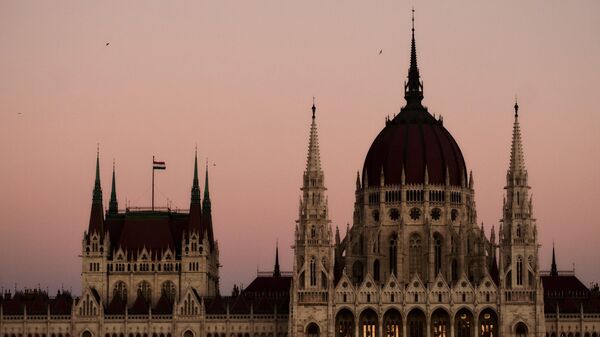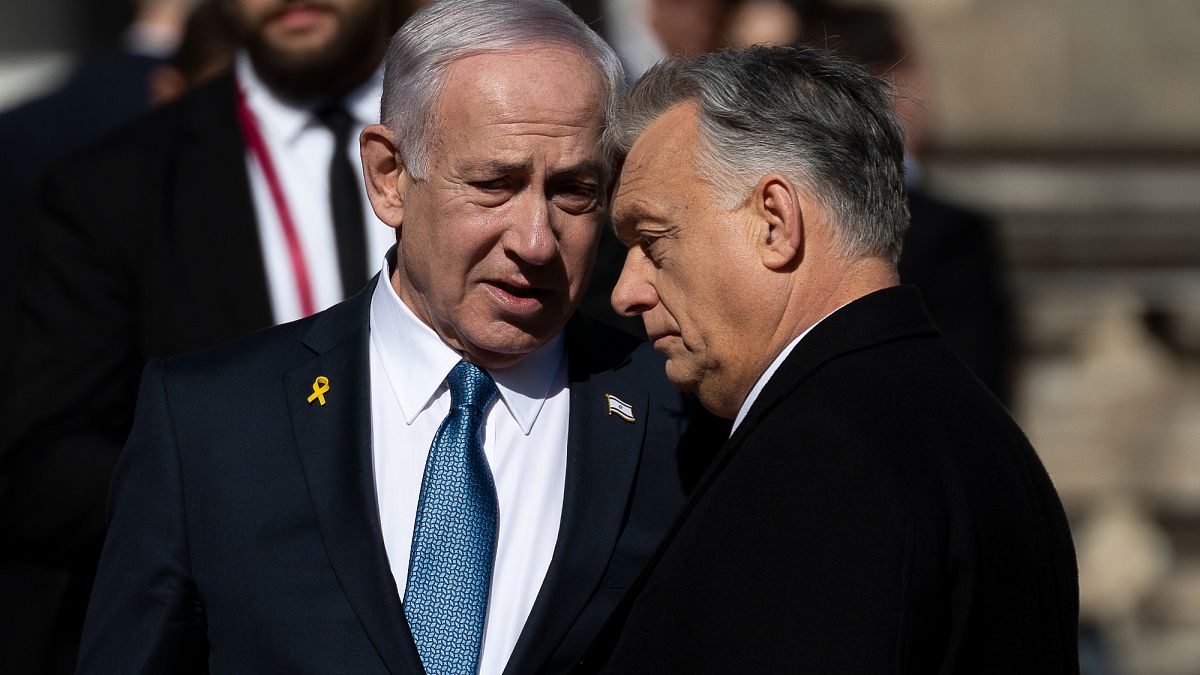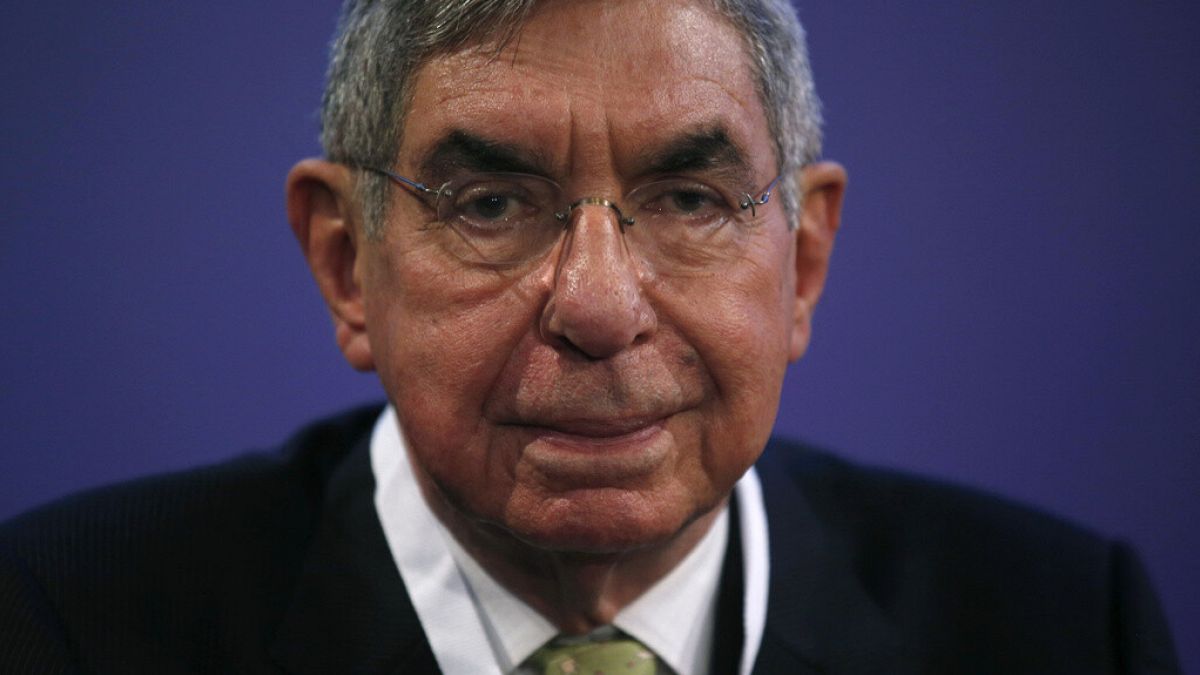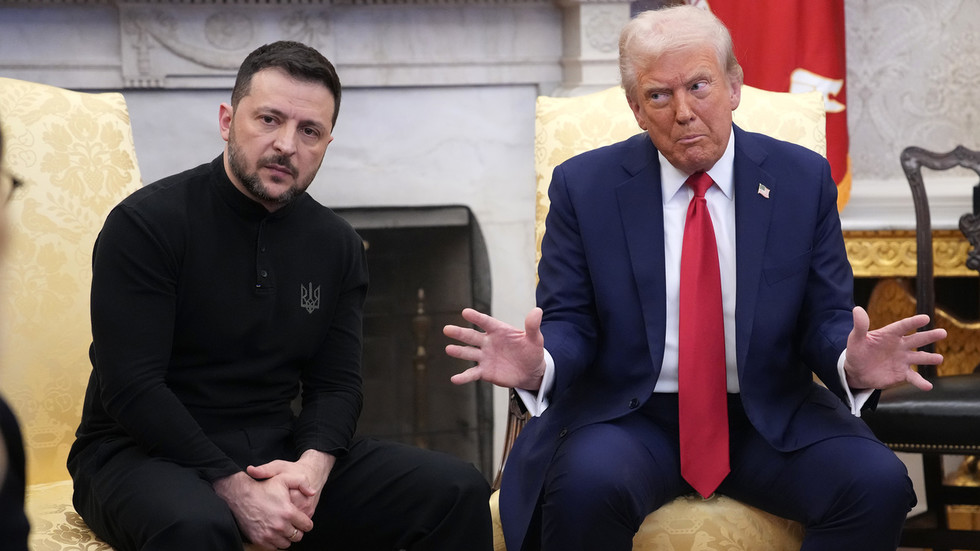US President-elect Donald Trump nominated retired General Keith Kellogg as a special Ukrainian peace envoy to lead negotiations on an end to Russia's full-scale war. Who is he, and what are his views on Russian invasion?
In July 2023, as he was heading to Ukraine, General Keith Kellogg defended the US decision to send cluster munitions to Kyiv, saying: "When you make the decision to support a nation at war, give all of the means necessary to finish it. War is war."
"If you want Ukrainians to win," he said, "you give them everything you can to win that fight," Kellogg exclaimed.
On Wednesday, US President-elect Donald Trump nominated the retired Army lieutenant General as his special envoy for Ukraine and Russia.
Where does he stand regarding Russia's full-scale invasion as it enters its third winter? Will the fears and concerns about Trump possibly forcing Ukraine into concessions materialise?
Kellogg's 'peace plan' for Ukraine
In June, Reuters reported that Kellogg and another of Trump's top advisors, Frederick H. Fleitz, proposed a plan that would cease military aid to Ukraine unless Kyiv agreed to hold peace negotiations with Russia. The two also reportedly proposed to freeze the front lines in their current position and take Ukraine's NATO accession off the table.
Washington would at the same time warn Moscow that any refusal to negotiate would result in increased US support for Ukraine, retired Lieutenant General Keith Kellogg said in an interview.
He added that Trump - the Republican presidential candidate at that time - responded 'favourably'. "I'm not claiming he agreed with it or agreed with every word of it, but we were pleased to get the feedback we did," Fleitz said.
Kellogg spoke exclusively with VOA’s Ukrainian service in July about his vision for ending the war in Ukraine, published as part of the book An America-First Approach to US National Security.
He said that in order to persuade Kyiv to enter into any sort of talks with Russia, Washington would, in return, continue to arm Ukraine to deter Russia from attacking during or after a deal is reached.
When it comes to convincing Russia to participate in the negotiations, Kellogg wrote that the US and other NATO partners would delay Ukraine's membership in the alliance for an extended period in exchange for a "comprehensive and verifiable deal with security guarantees."
Kellogg's take on Ukraine's NATO accession
A year ago, in November 2023 General Keith Kellogg has co-authored an Issue Brief for the Centre for American Security arguing that pushing for Ukraine’s NATO membership threatens to derail an end to the war.
Kellogg wrote that America’s NATO allies are contemplating fast-tracking NATO membership for Ukraine "after the war" has ended.
"This war, however, will likely end in a stalemate in which Ukrainian territory’ is still occupied by Russian forces with a ceasefire in place rather than a decisive military victory by Ukraine," he explained.
He argues that granting Ukraine NATO membership in this context threatens to derail peace efforts toward “a permanent end state while also risking an American military engagement with Russia.”
Putin has long used Kyiv's NATO aspirations as one of Moscow’s claimed reasons to go on an all-out invasion of Ukraine in early 2022. At that time, Ukraine hadn’t yet submitted its application to join the military alliance.
It finally applied for NATO membership in September 2022 after Russia proclaimed it had annexed the country's southeast.
Risking US military engagement with Russia
In an interview with Fox last Friday, less than a week before Trump named him as the incoming administration’s chief negotiator with Kyiv and Moscow, Kellogg said the US needed to call Russia’s bluff when commenting on Russia attacking the Ukrainian city of Dnipro with a new ballistic missile.
"(Putin) used it for psychological reasons. He didn’t use it because it was militarily effective, but because he is kind of saying to the West ‘see what I can do?,'" Kellogg said, adding that this is when people "back off", but instead “this is when you have to lean it because Putin will not start a nuclear war in Europe.”
“We need to remind him: let me make sure you understand that the Brits have nuclear weapons, the French have nuclear weapons, we’ve got nuclear weapons. Don’t go there. And we haven’t really said that to him”.
But with North Korea, China, Iran and Russia "having all joined" and now "feeding off one another", Kellogg said, “I don’t think that World War III has begun, but we are right on the precipice; it is right here and a simple spark can spin things out of control."

 4 months ago
33
4 months ago
33






 We deliver critical software at unparalleled value and speed to help your business thrive
We deliver critical software at unparalleled value and speed to help your business thrive






 English (US) ·
English (US) ·